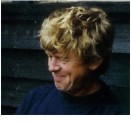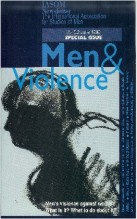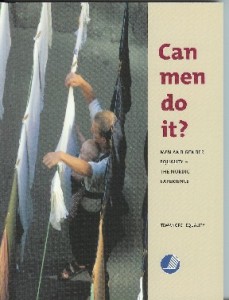Øystein Gullvåg Holter

Contact information
Centre of Gender Research, University of Oslo E-mail
Qualifications
Professor evaluation, University of Oslo, 2008
Dr.philos., University of Oslo, 1997
Sociology magistergrad, University of Oslo, 1980
Sociology ‘mid’ (mellomfag) exam with anthropology and economy, 1975
Background and work history
(born February 7, 1952)
- 1970 Examen philosophicum
- 1971-74 Sociology intermediate level (mellomfag), thesis on music sociology
- 1975-78 Worked in newspaper and printing industry (Aftenposten, Dagbladet, Emil Moestue)
- 1979-80 Sociology master (magistergrad)
- 1980-2008 Employed at the Work Research Institute (WRI), Oslo, with several leave periods financed by the Research Council of Norway and others
- 1980-83 WRI studies of the work environments of journalists, teachers and oil workers
- 1981-87 Work/family studies (North Sea oil commuters)
- 1984-87 Norwegian Social Sciences Research Council (NAVF) stipendiate, early history sociological study of gender and family systems
- 1986-89 Nordic comparative project on cohabitating couples (Samliv i Norden) with focus on work/family interaction (team member)
- 1986-89 Work/family in a ‘technology culture’ study (WRI part of above project).
- 1987-89 Men in Norway 1988 representative survey (for the Male Role Committee)
- 1989-93 Men’s life connection (Menns livssammenheng), a qualitative study of men’s work patterns and family socialization (financed by The Norwegian Council of Applied Social Research (NORAS) (later translated to Swedish, but never published in English)
- 1993-96 Dr. philos thesis work (see 1997e). Disputation (University of Oslo) in September 1997 (opponents: professors Rita Liljestrøm, Craig Calhoun)
- 1996-98 Member of business restructuring project team (WRI), study of flexible work (WRI)
- 1999: Nordic Region Men’s Studies Coordinator at NIKK, The Nordic Institute of Women’s Studies and Gender Research, University of Oslo (on leave from WRI)
- 1999: Evaluated to full professor competence in a WRI evaluation (professors Robert W Connell, Jorun Solheim and Dag Østerberg).
- 2000-1: Author and freelance projects (on leave from WRI)
- 2000-3 Critical Research On Men in Europe (CROME), EU Framework 5, project partner
- 2002-5: Work Changes Gender, EU Framework 5, project partner and sociological coordinator
- 2002-5 Velferd, maskulinitet og sosial innovasjon / Welfare, masculinity and social innovation, NCM/Nordic Council Welfare research program, project leader
- 2003-6: Kjønn, mestring og deltakelse / Gender, empowerment and participation (Research Council of Norway, project leader)

- 2004-6: Coordinated Action on Human Rights Violations (CAHRV), EU Framework 6, project partner
- 2006 – Fostering caring masculinities (FOCUS EU project), advisor
- 2006-8 Research director at NIKK, Nordic institute of women’s studies and gender research (two-year leave from WRI position)
- 2007 – Contributed to start of NGO network initiative, Men against rape
- 2008 – Professor at the Centre for Gender Research, University of Oslo
- 2022 – Professor emeritus, University of Oslo
Boards, advisory positions and networks
- Organizer of music network Samspill, co-founder of record company Mai (1972)
- Norwegian Network for Studies of Men initiator 1989, co-ordinating the network in the 1989-91 period, and editing its newsletter Mannsforskning (1989-94).
- Member of the board of the Secretariat for Women’s Studie in the Norwegian Research Council (1992-94)
- Member of the Norwegian Gender Equality Council (1993-96)
- Member of the Research Council (Vetenskapligt råd) of the Swedish Business Academy (Næringslivets Ledarskapsakademi) (98-02)
- Supplicant member (1996), member (98-00) of the board of the Centre for Women’s Studies, University of Oslo

- 1993-2000 Helped initiate the International Association for Studies of Men (IASOM) network. Editor of The IASOM Newsletter (1993 – 2000)
- Co-editor of Men and Masculinities (Sage, 1998 – 2012)
- Columbia University Conflict Resolution Network associated member (2004)
- Menn mot voldtekt / Men against rape initiative participant (2007 – 9)
- Research network on rape and sexual gray zones (2012 – 16)
- Member of Norway’s Gender Equality Commission (2010-12)
- Member of Norway’s Gender Equality Indicator group (2016)
Research overview
My first study was called The Gender Market (Kjønnsmarkedet) (1980a; 1981a; 1983i), an interview and observation study of partner selection with a focus on gender reification. From 1980 I worked at The Work Research Institute, Oslo, as junior participant in projects on work environments (journalists, teachers, oil sector). Gradually this led to more focused work/family integration projects. I also wrote theory papers like 1982a on gender discrimination as an economic structure, 1982b on heteronormativity and sex (see text), 1984f on gender as forms of value, and 1984d on socialist patriarchy( see text). In 1984 I received a three year grant from the Research Council of Norway, that I used for early historical gender and family system studies.
From the late 1980s, my main field shifted from gender in working life, towards studies of men. In 1988, I designed a survey for the Norwegian Male Role Committee, resulting in 1989a on men in Norway (see also 1989f), and I also published a study of work / family interaction (1990c).
This was followed by a qualitative study of caring men (Holter & Aarseth1993a), theorizing men’s life connections and gender position (the picture shows the Swedish version).
My dr. philos dissertation 1997e contained a “social forms analysis” of gender-related discrimination patterns, in an attempt to move beyond the feminist critical theory that I had already developed in my 1980s work. Discrimination is not just about “interest”, but also “form”, and in socioeconomic terms this includes gift giving, sharing and redistribution, as well as commodity and capital exchange.
Books from this period include Holter, Karlsen og Salomon 1998 on work life restructuring, and Holter 2003b Can men do it? Men and gender equality – the Nordic experience. Theory papers include 1997a on the rising role of caring, and 2004e on the gendering of violence.
In the early 2000s, I explored social innovation theory and its possibilities (see eg 2007c and 2007d), and also put more focus on problem areas (see 2009 interview).
In 2010-12 I participated in The Role of Men in Gender Equality EU (Progress programme) project, as well as the Norwegian Gender Equality Commission (Skjeie-utvalget).
Since 2009, I have held many courses at the Centre for Gender Research, University of Oslo: Men and masculinities, Theorizing gender equality, and a master student thesis course, and I was the study program leader for a period.
Since 2007, the model for survey research on gender equality that I made together with colleagues Helge Svare and Cathrine Egeland at the Work Research Center has been “exported” and used in many countries. See http://sciencenordic.com/how-measure-gender-equality
In 2015, an improved survey based on the Norwegian model was made in Poland, and in 2025, Austria.
In 2016 – 2022, most of my research concerned gender equality in academia, resulting in a book with that title (with Lotta Snickare), describing three structures that hinder gender balance in top positions at the university level, see https://press.nordicopenaccess.no/index.php/noasp/catalog/book/179.

